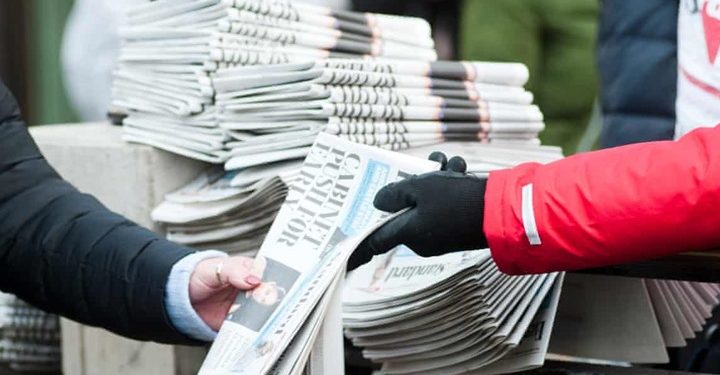
The British government has accused The Evening Standard and The Independent of being part of the Saudi regime through a series of “unconventional, complex and secret” deals to hide the sale of two London-based news platforms to a Saudi government bank.
Russian media tycoon Evgeny Lebedev, who controls the newspapers, sold 30 percent of their shares to foreign companies in the face of Saudi businessman Sultan Mohammed Abu al-Jadayel in 2017 and 2018.
The newspapers say they are not sure who is behind Abu al-Jadayel.
“The government of Saudi Arabia can exert its influence on the editorial policy of the two newspapers,” said David Skanel, the legal representative of the British government. “The sale of their shares will” affect national security, “he told Lebedev.
The court also said the investments were made through two separate companies in the Cayman Islands, Scalable and International Media Company, to conceal the identity of the real investor.
Abu Al-Jadayel holds 50 percent of the shares in each of the two companies, while Wondrous Investments controls the remaining half of the shares. And “Windsor Investments” of the National Commercial Bank, which is controlled by the Saudi government, The Guardian newspaper reported.
Lebedev’s lawyers are trying to block a British government inquiry into the Saudi investment, citing delays in the deadline. But the British government says its delay is partly due to the refusal of Lebedev and Saudi investors to deliver basic information about the deals.
Culture Minister Jeremy Wright announced a probe into the deals last month, warning that the final investor may have “strong ties with the Saudi authorities,” raising concerns about a foreign government gaining influence over the editorial policy of two of Britain’s biggest newspapers .
Wright said previously that Saudi investment deals “may affect the news agenda of The Evening Standard and The Independent.” The latter launched a series of websites in several languages, including Arabic, under the management of Saudi journalists.
On the other hand, the two newspapers insist on the independence of their written policies and not subject to the influence of financial investors.
Lebedev has close ties to Saudi Arabia. He has published an image with the armed militias he supports in Yemen.
These investments have raised the fears of critics about Abu al-Jadayel’s interest in investing in the British press. Many saw it as a facade in which the authorities of the House of Saud seek to polish their image in the West due to their poor record in the field of freedoms, the press and human rights, especially after the assassination of Saudi journalist Jamal Khashoggi in Istanbul, on 2 October last.